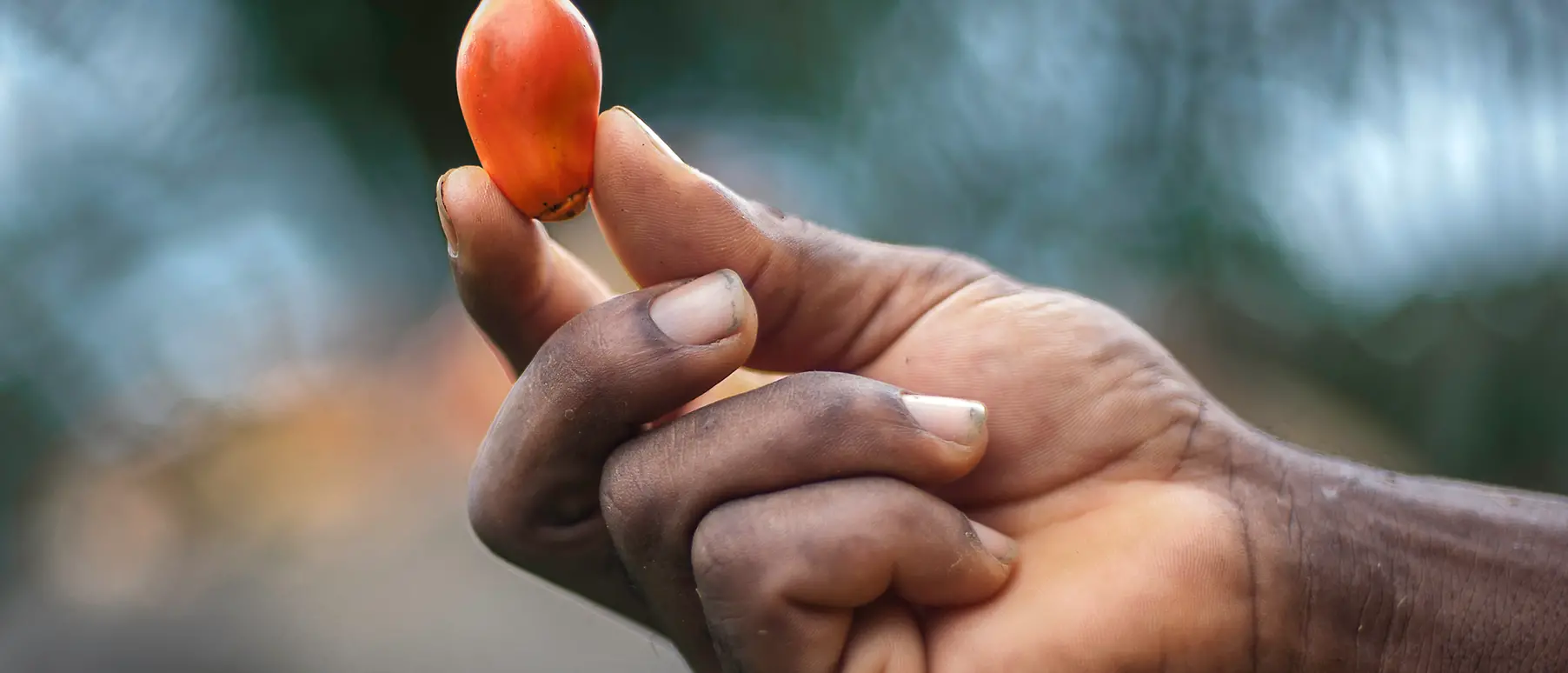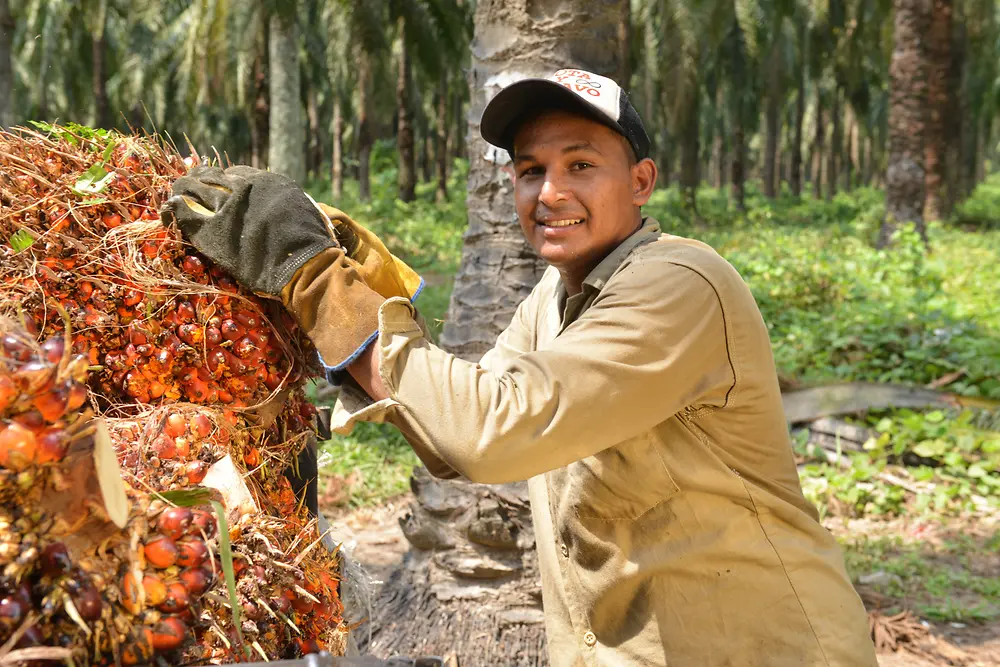Palm-oil- and palm-kernel-oil-based ingredients are a powerful example of how we actively promote sustainability in our supply chain. Palm oil, especially palm kernel oil and its derivatives, are important renewable raw materials needed to produce surfactants that we use in our detergents, household cleaners, hair and body care products.
For this reason, our goal is to ensure that the ingredients for our products are made from sustainable palm oil and palm kernel oil. With this in mind, we work with the companies from which we source our raw materials and with other partners to exert influence on the palm oil supply chain, from smallholder farmers to consumers.
Smallholder farmers produce about 40 percent of the world’s palm oil, yet their productivity and the quality of their products are much lower compared to large plantations. They often lack access to technical knowledge and financial services that are crucial to improving their production. Some farmers are also concerned that access to the palm oil market will be limited if their harvests do not meet the criteria set out by the RSPO. In collaboration with the civil society organization Solidaridad, Henkel is addressing these challenges since 2013. We have partnered with Solidaridad on initiatives in Colombia, Ghana, Honduras, Indonesia, Mexico, Nicaragua and Nigeria since 2013. To date, about 39,700 smallholder farmers have been reached and trained.
Henkel is a committed founding member of the Forum for Sustainable Palm Oil (FONAP) in Germany and is a member of several of its working groups. We are also actively involved in the Roundtable on Sustainable Palm Oil (RSPO). The RSPO standard increasingly includes compliance with human rights along the entire supply chain, in addition to environmental aspects.









